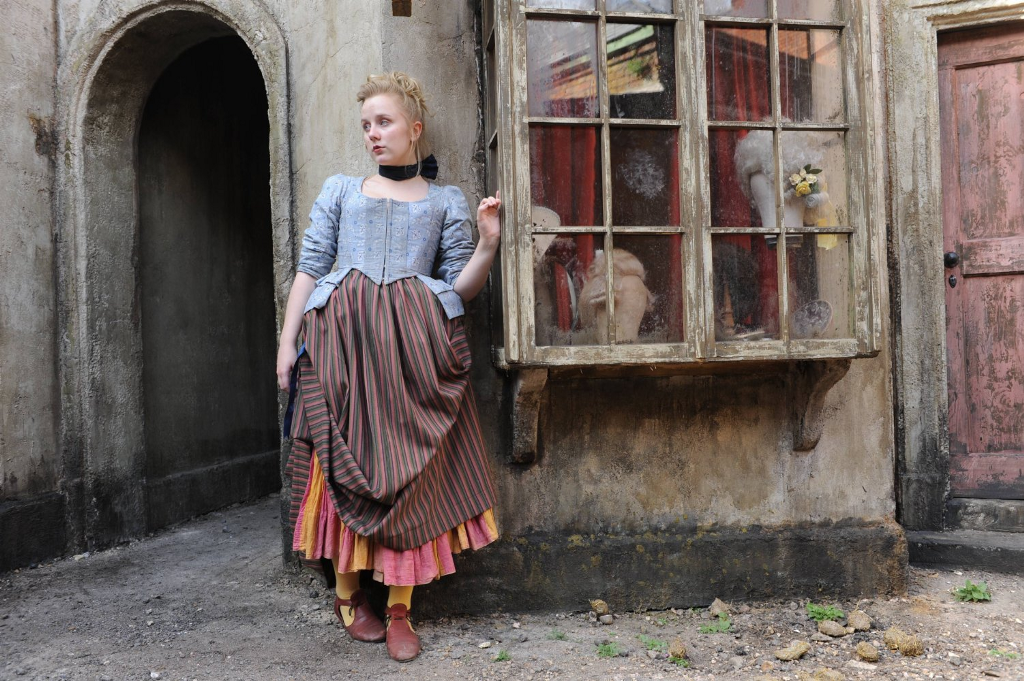
A group of tight-knit mothers with some very dark secrets. Two 20-something women of color trying to excel in their professional and personal lives. A rag-tag team of professional female wrestlers. A bleak, not-so-futuristic society where women are stripped of all their rights. We’re calling it: 2017 was an especially strong year for women on TV. We’ve collected some of the best shows from the year and they all feature women defying convention in one way or another. They might be breaking boundaries by becoming Louisiana’s first black female mill owner. They could be proving they are much more than a simple label like “murderess.” Or they could simply be trying to hold onto their sense of self as they delve deeper into single motherhood.
Here are some of our favorite TV shows created by and about women from 2017:
“Big Little Lies”
What a cast! Reese Witherspoon, Nicole Kidman, Shailene Woodley, Laura Dern, and Zoë Kravitz joined forces to bring Liane Moriarty’s best-selling book to the small screen. Set in the picturesque, upper-class town of Monterey, “Big Little Lies” shows all the ugliness that goes on behind even the most ornate doors. Plenty stands out about the murder mystery, but something that seemed to get everyone talking was “Big Little Lies’” unflinching, nuanced depiction of domestic violence. We’re betting Season 2 of the HBO show will keep that much-needed conversation going. While the show tackled incredibly serious subject matter, it also supplied plenty of laughs, largely thanks to motor-mouth Madeline (Reese Witherspoon), who never hesitates to tell it like it is. “Big Little Lies” was a huge hit with audiences and critics, and it seemed to encourage more people to join the dialogue about the need for more female-led stories.
“The Handmaid’s Tale”
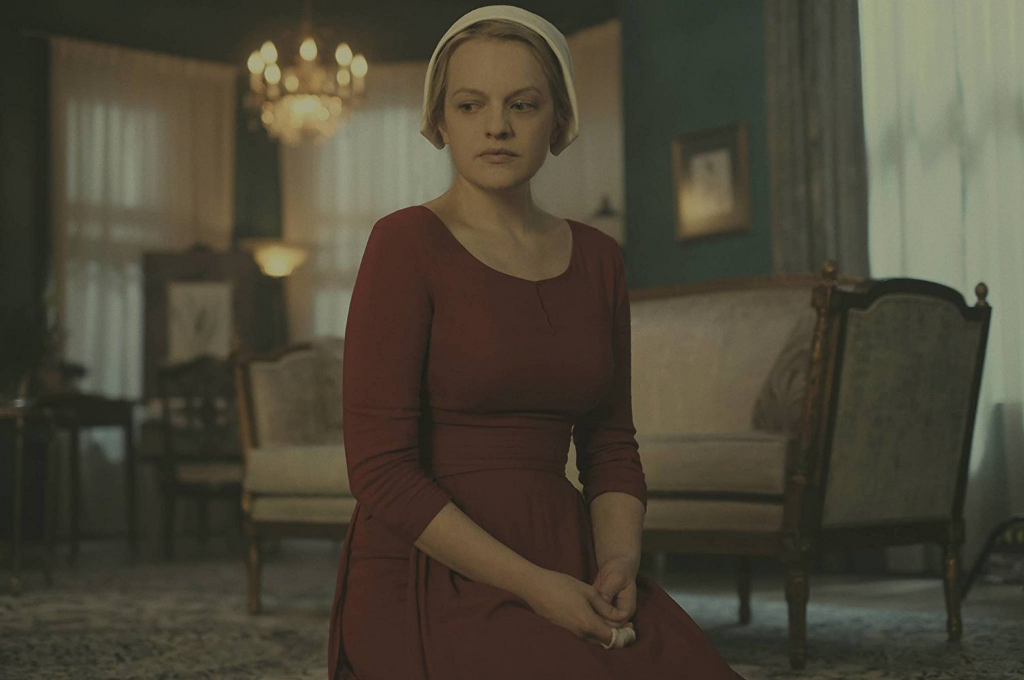
There’s a reason the Hulu adaptation of Margaret Atwood’s dystopian, feminist classic swept the Emmys. Even though it was in the works before the 2016 election, “The Handmaid’s Tale” is very much a commentary on the Trump Era. The women of Gilead are all screwed in one way or another. The Marthas are used for drudgery, the Jezebels for sex, and the Handmaids for procreation. Only the Wives and Aunts wield any degree of power, and they use it to make sure all the other women stay in line. In other words, Gilead reduces women to one-dimensional figures: servants, matrons, mothers, wives, or whores. It’s terrifying to watch. It’s terrifying to know that Atwood considers “The Handmaid’s Tale” more relevant now than when it was first published. And it’s terrifying that she’s right. Nolite te bastardes carborundorum, indeed.
“Insecure” — Co-Created by Issa Rae
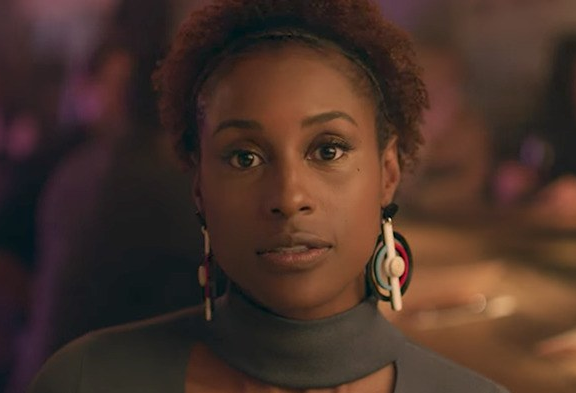
“Insecure” definitely didn’t suffer from a sophomore slump. If anything, the HBO show got even stronger in its second season, which saw Issa (Issa Rae) dealing with the dissolution of her long-term relationship and hitting the dating scene. Issa’s professional life was no less complicated than her personal one, and included a complicated dynamic with a racist vice principal and a co-worker determined to confront him. Plus, we got to see more of one of TV’s most interesting friendships, Issa and Molly’s (Yvonne Orji). Prepare for a gut-punching scene in the final moments of the season finale.
“GLOW” — Created by Carly Mensch and Liz Flahive
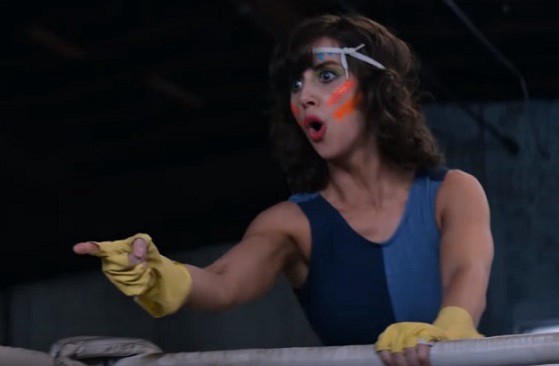
Professional wrestling has a deservedly bad rep for its depictions of women. All too often they’ve been stuck serving as ornaments ringside or wrestling in pudding matches — performing roles that are clearly pandering to the male gaze. For feminist pro wrestling fans, “GLOW” is a dream come true. And you don’t have to be familiar with suplexes or the sharpshooter to appreciate the Netflix series. In a super refreshing twist, the central relationship in “GLOW” isn’t a romance — it’s the story of two female best friends (Alison Brie and Betty Gilpin), one of whom has betrayed the other, and is fighting to win her back. It’s an ’80s-set underdog story that sees women learning how to wrestle, and in order to do so, they need to push their limits and work together. “GLOW” is really a sight to behold — women of all races and body types are featured in the ensemble, and it’s nothing short of glorious to see this inclusive cast in action, especially when they’re in the ring. Plus, it’s great to see “Community” and “Mad Men” alumna Brie leading her own show — her committed and absorbing performance shows just how overdue the opportunity is.
“The Bold Type” — Created by Sarah Watson
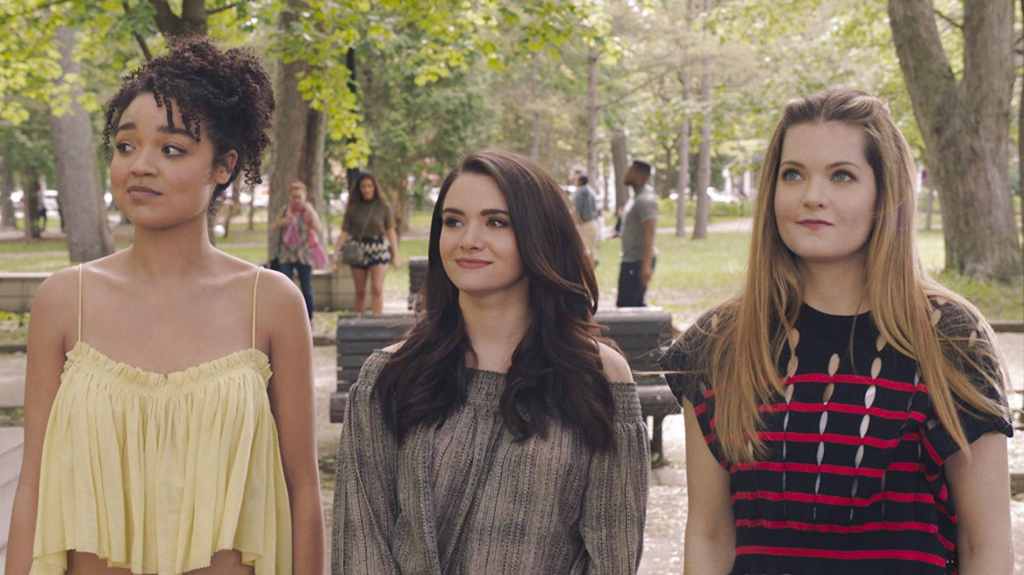
Interested in stories about young women in the workplace? “The Bold Type” may be just the show you’re looking for. Inspired by the life of former Cosmo Editor-in-Chief Joanna Cole, the drama centers on three young women (Katie Stevens, Aisha Dee, Meghaan Fahy) making names for themselves at Scarlet, a global women’s magazine led by a female editor-in-chief (Melora Hardin). The timely Freeform show tackles issues like xenophobia, internet trolling, and negotiating a raise. It’s great to see self-possessed young women bonding over the triumphs and tribulations of their jobs and building a family among one another outside of the Scarlet offices.
“Alias Grace” — Directed by Mary Harron; Written by Sarah Polley

In the opening scene of “Alias Grace” protagonist Grace Marks (Sarah Gadon) is making faces at herself in the mirror. She changes her expression to match what she’s been called in the newspapers: an idiot, a good girl, a murderess. “And I wonder,” she thinks, “how can I be all of these different things at once?” That’s the real question of “Alias Grace” — also a Margaret Atwood adaptation — though the miniseries was marketed as a more of murder mystery. Like many women before and after her, Grace has had to adopt various personae to survive. She’s the pure, blushing schoolgirl for Thomas Kinnear (Paul Gross). She’s a sharp-tongued cheerleader for James McDermott (Kerr Logan). She’s the damsel in distress for Dr. Jordan (Edward Holcroft). She’s the tortured victim for Jamie Walsh (Stephen Joffe). Grace becomes what these men want her to be because that’s the only way she’ll be safe from their wrath. Ultimately, “Alias Grace,” isn’t about murder, innocence, or guilt. It’s about the performances women put on in order to get through the day unscathed.
“Queen Sugar” — Created by Ava DuVernay
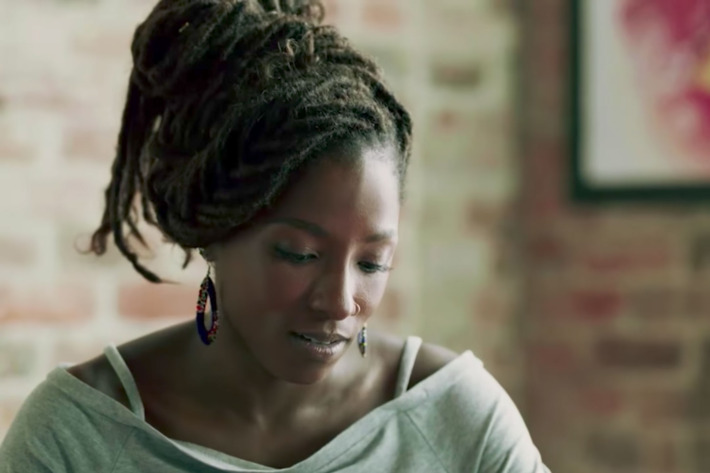
Once again “Queen Sugar” was helmed entirely by women. Once again it was awesome. Under the tutelage of directors like Julie Dash, Cheryl Dunye, DeMane Davis, and Kat Candler, the series’ second season tackled police brutality, the specific struggles black women face as they advance in their careers, the power of activism, the difficulties of building a life after being incarcerated, and much more. If its social relevance isn’t enough — although it most certainly is — Ava DuVernay’s epic tale of family and legacy also succeeds because it presents compelling, intricate relationships between the Bordelons, especially sisters Nova (Rutina Wesley) and Charley (Dawn-Lyen Gardner). Suffice to say, we can’t wait to see where “Queen Sugar” will go in Season 3.
“One Mississippi” — Created by Tig Notaro and Diablo Cody
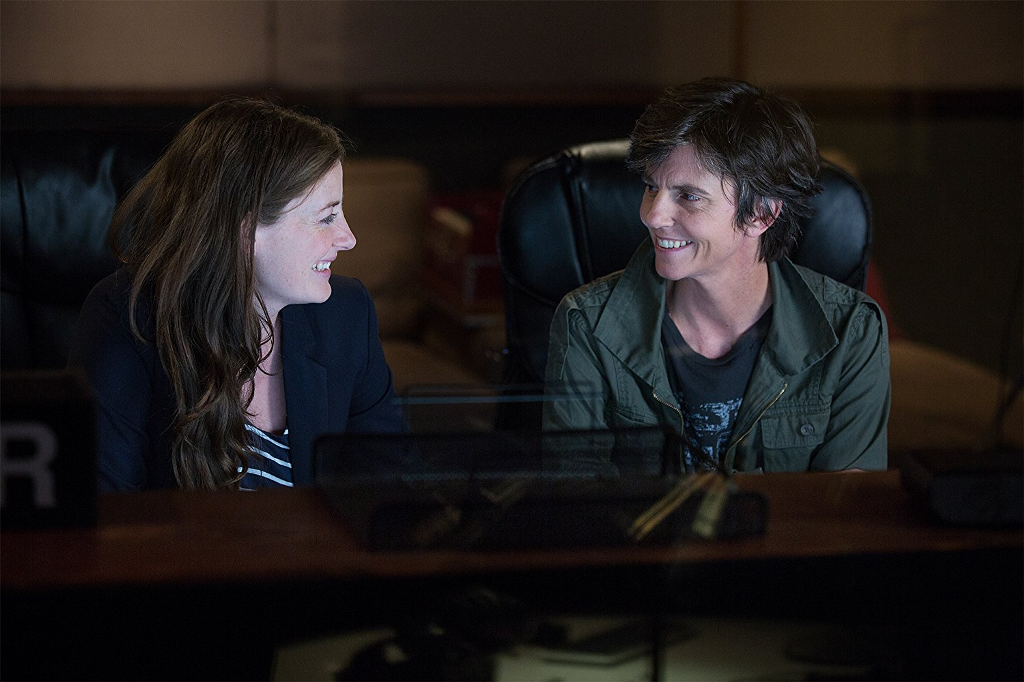
In addition to being fantastic, the second season of “One Mississippi” is one of the year’s most prescient series. In “Can’t Fight This Feeling,” the season’s fifth episode, Tig’s (co-creator Tig Notaro) producer and love interest Kate (Stephanie Allynne) is forced to watch an entertainment exec masturbate. This storyline contains obvious parallels to Louis C.K. — whom Notaro publicly criticized several times before the rumors about his sexual misconduct were confirmed. However, the episode is really more of an indictment of the insidiousness and banality of misogyny. Kate, like so many real-life women, is just going about her everyday business, her work, when she is hit with inappropriate, blatantly creepy behavior. Worse still, she’s powerless to stop it. There are plenty of reasons to watch “One Mississippi” — its wry comedy, its depiction of grief and family, the sweet romance between Tig and Kate — but its unflinching take on harassment makes it a must-see.
“SMILF” — Created by Frankie Shaw
“SMILF’s” title is a little misleading. Yes, its central character is a single mother — but Bridgette (creator Frankie Shaw) is more than that, so “SMILF” is about more than that, too. Bridgette still harbors ambitions of making it as an actress or playing in the WNBA, but holds down a thankless job tutoring rich kids. And while it’s Bridgette’s story, “SMILF” dedicates itself to exploring all kinds of women’s experiences. Bridgette’s mother (Rosie O’Donnell) tracks down an old flame and rediscovers her sexuality. Bridgette’s friend Eliza (Raven Goodwin) is overweight but loves her body, and wishes the rest of the world would, as well. And Nelson (Samara Weaving), the new girlfriend of Bridgette’s ex, has a tough time being taken seriously in her career as a sports journalist. Single motherhood is a major part of “SMILF” — Bridgette’s son Larry affects every decision she makes — but the Showtime series is most interested in how women rise above all the shit to find some happiness.
“Harlots” — Created by Moira Buffini and Alison Newman
The women of “Harlots” want a lot of things, but your sympathy isn’t one of them. As far as the titular sex workers are concerned, their lives aren’t perfect, but at least they’re not married. Moira Buffini and Alison Newman’s Hulu series makes clear that all women in 18th century London are exploited in one way or another. What sets the harlots apart is that they’re dictating the terms of their exploitation. Sure, the world might view them as fallen women, but they’re earning a lot more than they otherwise would in service. And they don’t have husbands, so their money stays their money. Boasting an all-women team of writers, directors, and EPs and starring Samantha Morton, Lesley Manville, and Jessica Brown Findlay, “Harlots” initially made headlines because it took sex workers — often marginalized in other narratives — and brought them to the fore. It’s a great show because it depicts most harlots as neither victims nor villains: they’re just women trying to obtain as much independence as they can.
